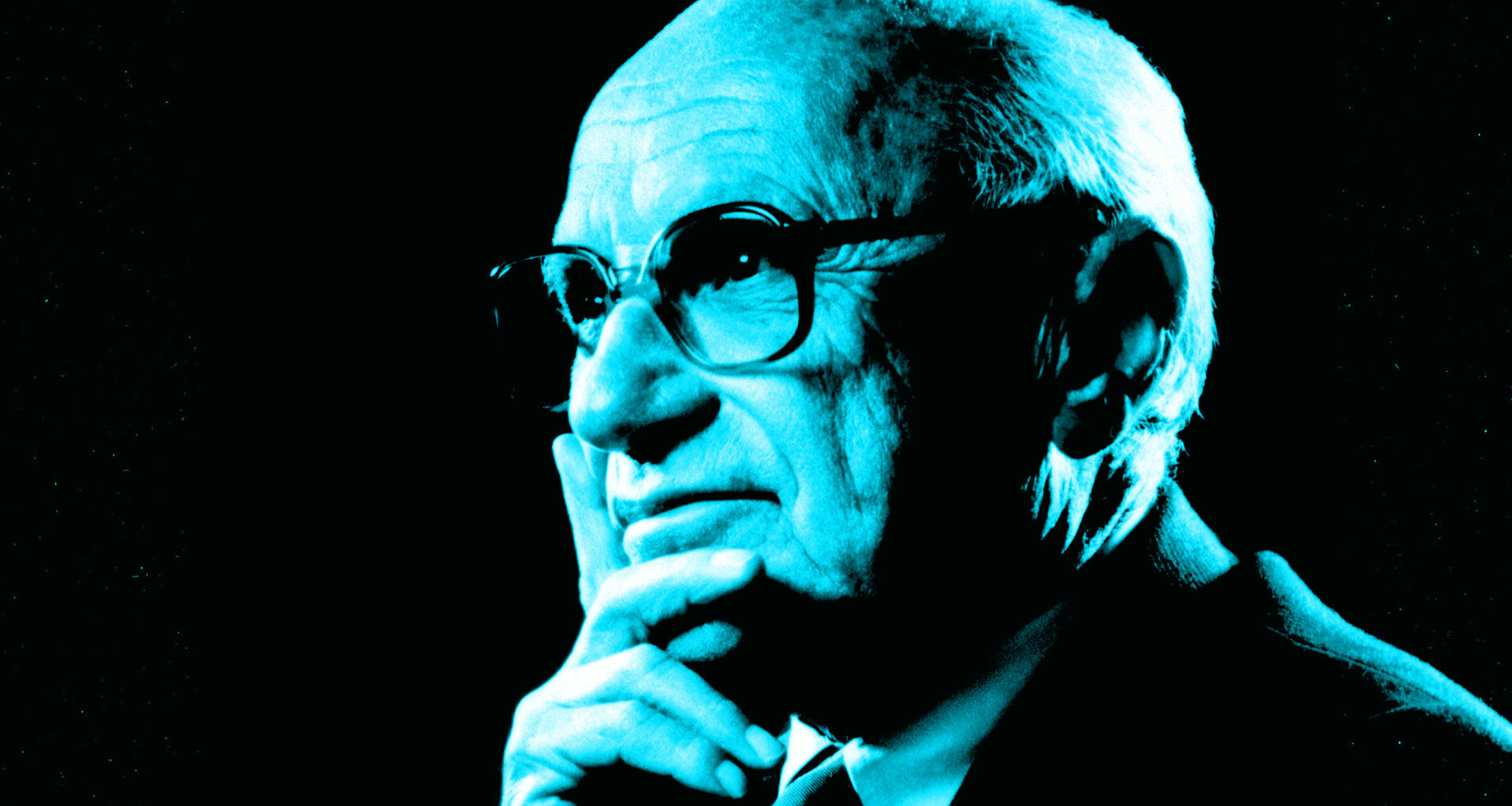Fifty years ago, Friedman compellingly presented his argument for shareholder primacy. But as currently implemented, absent business ethics, shareholder primacy threatens the unifying purposes that drove people to form corporations to begin with. It’s time for a re-examination of what binds us together to do great things.
Note: To mark the 50-year anniversary of Milton Friedman’s influential NYT piece on the social responsibility of business, we are launching a series of articles on the shareholder-stakeholder debate. Read previous installments here.
By J.S. Nelson
We can bring business ethics back to Professor Friedman’s call to corporate purpose by returning to the more inclusive purposes that historically bound us together to form corporations. Corporations have the capacity to tap humanity’s greatest potential to accomplish projects spanning, in scope and time, beyond what any individual could provide to the world. Think of the earliest forms of group associations that combined our efforts, from the Roman origin of our word for corporation, corpora (founded “around a common tie such as a common profession or trade, a common worship, or the widespread common desire to receive a decent burial”), through the intergenerational building of cathedrals erected to the glory of powers beyond ourselves.
Historically, corporations have been collaborative efforts to call people to a higher, communal purpose in their work, to take care of each other, and to accomplish what none of us could do alone. The late Cornell Law professor Lynn Stout described corporations as “time machines,” which allow one generation to reach beyond itself to convey benefits to the next. Corporate leaders similarly talk about a purpose larger than themselves, and the management literature is full of ways to harness the “best” from employees, asking for their personal commitments and investments in the company’s mission. Corporations additionally create a “culture” around those expectations to help them become self-reinforcing in the workplace.
To what purposes will modern employees and other stakeholders—communities, governments, and those who invest in the corporation in all ways—commit themselves? When corporations ask so much of their investors writ large, corporate purpose must have both an inspirational and unifying function.
Professor Friedman’s Legacy of Shareholder Primacy
In his 1970 New York Times essay, Milton Friedman asserted that the purpose of the corporation was to make profits. It has been understood that he meant profits primarily for shareholders, but that interpretation is less clear from his text. What he wrote was that “there is one and only one social responsibility of business—to use its resources and engage in activities designed to increase its profits so long as it stays within the rules of the game, which is to say, engages in open and free competition without deception or fraud.”
Professors Oliver Hart and Luigi Zingales have described Friedman’s 1970 essay “as providing the intellectual foundation for the ‘shareholder value’ revolution,” in the form of prioritizing profits to shareholders above other contributors to the corporation. As Zingales explains, “[s]ince the mid-1980s to the early 2000s, Friedman’s position was dominant not only in academia, but also in the business world.” The Chicago School provided the theoretical framework for these changes, during which economists, lawyers, and others attempted to model human behavior in terms of rational actors seeking to maximize their own utility. An argument for shareholder primacy over all other types of investors (i.e., over the corporation’s other stakeholders) was that shareholders were uniquely situated to represent other stakeholders’ interests and maximize them as well.
What the Data Show About the Impact of Shareholder Primacy
But these two rationales in favor of shareholder primacy are, of course, also mutually contradictory. If shareholders are rational actors, according to the Chicago School, then they are going to maximize their own utility, not that of other stakeholders. Perhaps shareholders should understand their own utility in terms of the rest of the corporation—and its other investors/stakeholders—doing well. The data show, however, that they do not.
For example, evidence compiled by Harvard’s Anna Stansbury and Professor Lawrence Summers demonstrates that, since the rise of shareholder primacy, shareholders have received corporate profits at the expense of workers. In fact, since the rise of shareholder primacy, Stansbury and Summers write, the “decline in worker power is big enough to explain the entire decline in the labor share of income in the United States over the past four decades.” Industries with the largest increases in corporate profitability—and payments to shareholders—were the ones with the largest decline in both worker power and workers’ share of corporate profits. The authors argue that these decreases in workers’ power and share of corporate profits have also driven one of the significant puzzles of the economy since the 1980s: low unemployment without inflation.
Additional descriptions map other paths of power transfer to shareholders at the expense of fellow stakeholders. An increase in monopolistic, or similar monopsonistic, concentration over the same time period has increased both shareholders’ profits and corporate control over workers. The US Supreme Court’s Citizens United decision, and other related cases, increased corporations’, and their shareholders’, political power over government policy through lifting limits on political contributions. Growing wealth inequality across society primarily benefits the top 1 percent of households who own more than half of US stocks, magnifying their power to extract profits from corporations, as well as their gains from tax policies that better insulate the transfer of that wealth.
Where Do These Results Leave Corporate Purpose?
Corporate purpose, as a motivation and unifying reason for investment from all of a corporation’s stakeholders, thus suffers. As Oxford professor Colin Mayer has written, “shareholder value is an outcome, not an objective. It should not drive corporate policy but be treated as a product of it.”
The traditional Chicago School’s vision of human nature as always rational has been challenged by behavioral economics’ rediscovery of human beings as more complicated creatures, motivated by things beyond money. Similarly, we remember again now that corporate purpose has to work for more of the corporation—and the rest of its investors/stakeholders—for them to stay a part of the corporate bargain. If a corporation is a team production, the team needs to understand why it is showing up and playing. If a corporation wants the best from its players, it needs to invest in them and inspire them to unite around its vision. Effective leaders need to explain how the corporation’s victory is its players’ victory, too.
Fifty years ago, Friedman compellingly presented his argument for shareholder primacy. But its manifestation over time threatens to leave behind our teams. As currently implemented, shareholder primacy threatens the unifying vision that allowed us once to build the cathedrals of their day, and to believe in such missions. We are losing our workers’ engagement, and replacing it with an economy driven by fear. Tying health care coverage to employment during a pandemic further disadvantages businesses that do try to help employees, and it reveals the starkness of accumulated power differentials harming our workers. As Mr. Marc Benioff, chief executive of Salesforce, summarizes: “[L]ook where the obsession with maximizing profits for shareholders has brought us: terrible economic, racial and health inequalities; [as well as] the catastrophe of climate change.”
In theory, the 2019 Business Roundtable Statement demoting shareholder primacy, and describing corporate purpose as “a fundamental commitment to all of our stakeholders,” is a good start to rethink the direction in which we are headed. Recent work by Professor Lucian Bebchuk and Mr. Roberto Tallarita asks why, however, if corporations were serious about these changes, they did not bring them more often to their governing boards. Professor Tyler Wry’s work further suggests that Covid-19 is testing the resolve of the companies that signed the Statement. Since the economic impacts of Covid-19 began, its signatories have paid out 20 percent more capital to shareholders than similar companies, and signatory companies have been almost 20 percent more likely to announce layoffs or worker furloughs. Given management incentive systems in place, the Statement’s aspirations do not seem to be penetrating into the behavior of signatory corporations.
As another essay by Bebchuk, Tallarita, and Mr. Kobi Kastiel examining the efficacy of stakeholder constituency statutes in this ProMarket series concludes, there should be “substantial doubt [about]… relying on the discretion of corporate leaders, as stakeholderism advocates, to address concerns about the adverse effects of corporations on their stakeholders.”
A Call for Reforming Corporate Purpose and Incentives to Achieve the Most from Our Organizations
It is in moments of crisis that employees and other stakeholders will remember what corporations do. These are the moments in which having a higher, unifying purpose, and ensuring that incentives throughout the corporation are in line with that purpose, are most important. Such moments are when we decide who we want to be. Starting now, corporations could use their teams to build their own metaphorical cathedrals by acting in accordance with their ethical values. We should return to corporate purpose that inspires continued investment from all of our stakeholders, and not elevate shareholders solely above others. I acknowledge that balancing tradeoffs amongst stakeholders is hard, but that is part of why we have corporate boards. And perhaps those boards should be, as Professor John Coffee, Jr. suggests, diversified to attain these goals.
I close with Friedman’s own words about businesspeople’s decision-making. As he wrote: “I have been impressed time and again by the schizophrenic character of many businessmen. They are capable of being extremely far-sighted and clearheaded in matters that are internal to their businesses. They are incredibly short-sighted and muddle-headed in matters that are outside their businesses but affect the possible survival of business in general.”
Friedman may have aptly identified the problem, but we have misunderstood the solution. If the goal is to ensure “the possible survival”—indeed, the flourishing—“of business in general,” the solution is to encourage commitments from all those who contribute to its success. We can change our ways, and we can do something both ethically and strategically better than the past fifty years.
 J.S. Nelson teaches at Villanova Law School, with an appointment (by courtesy) in Villanova’s Business School, and serves as a Senior Fellow with the Zicklin Center for Business Ethics Research at Univ. of Pennsylvania’s Wharton School. Her forthcoming book with the late Lynn Stout and the Oxford University Press is Business Ethics: What Everyone Needs to Know.
J.S. Nelson teaches at Villanova Law School, with an appointment (by courtesy) in Villanova’s Business School, and serves as a Senior Fellow with the Zicklin Center for Business Ethics Research at Univ. of Pennsylvania’s Wharton School. Her forthcoming book with the late Lynn Stout and the Oxford University Press is Business Ethics: What Everyone Needs to Know.
This article originally appeared in ProMarket.











